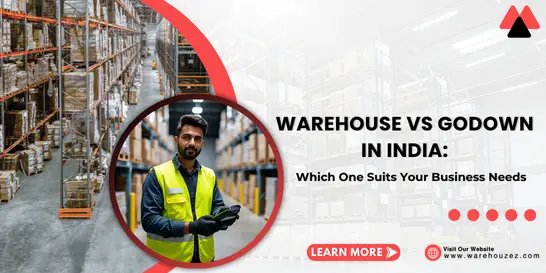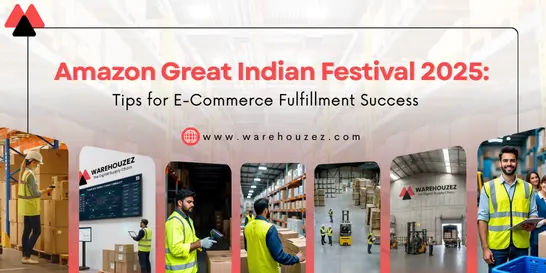Overcoming Warehouse Labour Shortages With Human Machine Collaboration
Overcoming Warehouse Labour Shortages With Human Machine Collaboration
The majority of manufacturing warehouse operations constantly strive to increase productivity and efficiency. They are focused on increasing efficiency, automating them whenever possible, and minimizing errors.
We live in unique times. A productivity risk can arise from anywhere leading to labor shortage. When diminishing production and problems with the global supply chain are added, the possibility of maximizing profits quickly disappears. Innovation and enabling human-centered productivity are also necessary.
In this blog we throw light on the critical areas to be considered while overcoming warehouse shortcomings with human and machine collaboration. We will explore both the positives and the negatives of it.
Let‘s move further in our discussion by understanding the concept one by one.
Is Warehouse Robotics a Good Option?
Warehouse robotics, artificial intelligence, and automation are all extremely expensive, time-consuming, and complicated systems. They frequently need the redesign and restructuring of processes.
As a result, a sizable portion of your company's freedom may go. Therefore, it must be underlined once more that technical systems are not error-proof. Many businesses are now choosing to match robotics solutions that do routine tasks with human workers so they may concentrate on more important duties. Without the right technological solutions, such as robotics, warehouses would not have enough workers or be able to produce enough output to fulfill demand.
How Can Human Labor Increase Productivity in Manufacturing and Warehouse?
In a recent study of warehouse workers, it was found that, Workers worry about losing their employment, having insufficient training resources, and dealing with delays or mistakes caused by technology failures.
When putting new procedures in place, it's crucial to pay attention to and address the concerns of employees. Humans continue to be an essential component of manufacturing and warehouse performance because they bring cognitive reasoning and decision-making, which is essential for coping with variations, fluctuations, and short product life cycles.
In a warehouse and logistics setting, picking, storing, and retrieving components and deliveries were traditionally all done by hand. These activities are demanding, though. You have to pull a cart all day, lift things all day, and walk a lot. The most time-consuming part of the choosing procedure is the travel time, which accounts for between 40 and 60 percent of the total picking time.
Tips on Overcoming Manufacturing Warehouse Shortages
The tips on overcoming manufacturing warehouses shortages are as follows:
Data Accuracy and Visibility
Robotics in your warehouse gives your employees better data and asset visibility, enabling them to identify and find the assets that are quickly from inventory shelves. By integrating robotics into your company, you may give employees faster access to data that can be turned into actionable insights for quality control, process simplification, and production optimization. Warehouse labour workers can respond to requests more quickly and make better judgments when there is an increased insight into what is happening throughout the supply chain.
Better Productivity and Efficiency
Robotics in your warehouse can cut the number of time pickers spend moving around by as much as 60%. As a result, employees can spend more time focusing on projects rather than searching the warehouse for supplies. By providing real-time asset location to your employees, you enable them to identify key tasks and focus on completing them. Because they are not required to complete additional manual jobs that robots can complete, the process becomes more efficient.
Reduce Stress and Errors
Innovative robotics solutions that are easy to use benefit your employees. The robot systems offered by Fetch are simple to use and can securely navigate warehouse settings. This lowers employee stress, which improves customer satisfaction. Additionally, deploying robots lowers the possibility of errors in manual, standard warehouse processes. This is because these technologies promote visibility and guarantee smooth information flows.
Wearables into Action
Depending on the situation, wearables provide the benefit of keeping the worker's hands free at all times, saving up to six seconds for every scan. If a barcode scanner with an integrated display is being used, additional job instructions, such as the next assignment, can be given via the display. Most importantly, the wearable mustn't turn into a chain. Glove or back-of-hand scanners have shown to be especially useful in practice. If wearable barcode scanners are fitted with sensors that can read, analyze, and enhance extra meta-data, this can be a significant advantage. These details include the location of use, the steps taken, and the overall number and length of scans.
Conclusion
The goal of technology is to relieve human workers, not to replace them. Given the current labor shortages and disruptions in global supply chains, this message needs to be firmly established. Warehouzez is always there to assist you in productivity and efficiency. We provide logistics and other services for Gurgaon and Mumbai locations.



